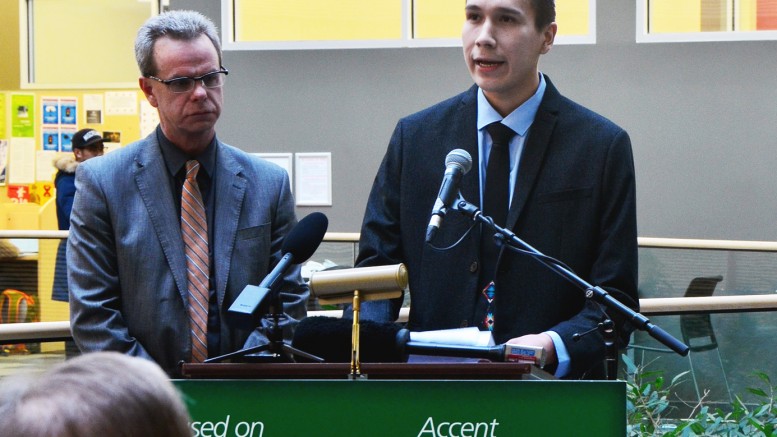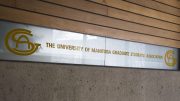Colleges and universities across the province will receive an additional $27.9 million from the Manitoba government, NDP Premier Greg Selinger announced Jan. 7.
The bump amounts to a four per cent increase in overall post-secondary funding, bringing the total annual investment to $710.8 million, according to a provincial release.
“One of the strongest indicators of economic prosperity is a well-educated population, so these investments for students in colleges and universities mean that Manitoba’s economy will be strong in the future,” Selinger said at a press conference at the University of Winnipeg.
The operating grants for universities will climb 2.5 per cent, while colleges will receive a two per cent increase. The remainder of the funding is devoted to specific programs and initiatives.
The operating funding increase is consistent with what has been seen in previous years, with the provincial operating grant for universities increasing by 2.5 per cent last year.
The Manitoba NDP will soon be campaigning for a fifth consecutive term in office, having governed the province since former premier Gary Doer was elected in 1999. The provincial election takes place on April 19, 2016.
During the press conference, Selinger explained that $2.2 million will be distributed to specific programs and initiatives, including more than $800,000 for a joint bachelor of midwifery program at University College of the North and the University of Manitoba; $440,000 to support the Manitoba Transfer Credit Portal, allowing the transfer of credits between accredited post-secondary institutions; and nearly $300,000 to increase access for indigenous, newcomer, or marginalized students.
The announcement also included new funds for scholarships, bursaries, and awards to students and teachers who excel in their field, including $3 million to support U of M graduate students.
“We know that hard-working middle-class families value education and want to be sure that when their children go to university and college they are getting an affordable, high-quality education,” said James Allum, minister of education and advanced learning, in a release.
“We are not following the path of other provinces that are cutting funding to universities and colleges and taking opportunities away from youth.”
As part of the province’s response to the Truth and Reconciliation Commission, the premier also announced new provincial funding for indigenous education.
The funding includes $1 million in capital support for the National Centre for Truth and Reconciliation at the U of M, $610,000 for a new master of social work in indigenous knowledge at the University of Manitoba, and $350,000 to provide each college and university with funding to support indigenous culture on campus.
“Today’s investment is great news for post-secondary institutions in Manitoba, particularly the University of Manitoba,” said David Barnard, president and vice-chancellor of the U of M, in a release.
“I am delighted Premier Selinger continues to share our vision for and commitment to indigenous education and support for the next generation of indigenous leaders in our province,” he said.
The University of Manitoba engaged in broad-based budget cuts last year. Barnard argued that the cuts were prompted in part by inadequate annual provincial funding coupled with low tuition fees for students.
Whether the funding announcement will impact the university’s plans to cut an additional four per cent from its operating budget this year remains to be seen, however.
Jaron Moen Gun Hart, the Aboriginal commissioner for the Canadian Federation of Students-Manitoba and a U of M political studies student, was at the press conference and praised the government for the announcement, saying he strongly believes that 2016 is the year of reconciliation.
“It means a lot to me as an intergenerational survivor of the Indian residential school era,” he said. “My grandmother, mother, and sister all attended residential schools.”
“As I began reconciliation within myself to heal from the effects this tragedy had on my family and so many others, we are now just beginning to heal as a province and country through education and awareness of the Indian residential school era,” said Hart.
“This is why each and every announcement made by all levels of government surrounding the 94 calls to action as recommended by the Truth and Reconciliation Commission should be welcomed and applauded.”





